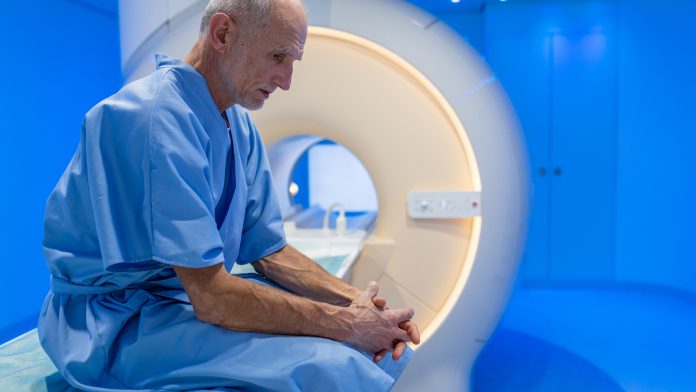
Researchers at the University of East Anglia have made an important discovery that may identify one of the key causes of prostate cancer.
The study revealed that the whole prostate, even when cells appear normal, is different in men with prostate cancer. This suggests that tissue cells in the prostate are abnormally susceptible to cancer development.
This research may mean a change in the approach to treating prostate cancer. The study suggests that it may be better to treat the prostate as a whole, rather than just the areas with cancer.
The University of East Anglia (UEA) researchers hope their research can help scientists to better understand the causes of prostate cancer.
Prostate cancer is the most common cancer in men
“Prostate cancer kills one man every 45 minutes in the UK. Often, when men are diagnosed with prostate cancer, groups of cancer cells can be found in more than one location within the prostate,” said Lead researcher, Professor Daniel Brewer, from UEA’s Norwich Medical School
“We wanted to know if this is because of changes in ‘normal’ prostate cells throughout the prostate.”
Cancer is driven by changes in the DNA of cells. The research team studied the DNA code of 121 tissue samples from 37 men without prostate cancer.
“The samples we studied included tissue that comes from cancer and tissue from elsewhere in the prostate, which looks normal down the microscope. This produces a massive amount of data and by applying a large amount of computer power, we can determine the differences that have occurred in the DNA, giving us insight into the causes of prostate cancer,” said Professor Brewer.
The researchers found that the ‘normal’ cells in the men who had prostate cancer had more genetic mutations than the ‘normal’ cells found in men without prostate cancer.
“Based on the genetics of the samples analysed, we created maps to understand where the different mutations occurred. And we showed that in most men, the mutations in normal cells are different to mutations in cancer cells,” explained Brewer.
Understanding causes of prostate cancer can lead to better treatment
This analysis revealed potential causes of prostate cancer. The ‘normal’ prostate cells in the men who did have prostate cancer appeared to provide an ideal environment for prostate cancer cells to grow and develop. “In other words, the whole prostate is primed and ready to develop prostate cancer driven by a yet unknown, biological process,” said Professor Brewer.
This improved knowledge of the causes of prostate cancer and how it starts to develop may help scientists learn how to prevent and treat the disease, according to Professor Brewer. “It shows that it may be better to treat the whole prostate rather than only the areas in the prostate that have cancer,” he said.
“This exciting new research shows for the first time how normal cells in the prostate can facilitate the growth and spread of prostate cancer,” said Dr Hayley Luxton, Senior Research Impact Manager at Prostate Cancer UK.
“The researchers found that normal prostate cells in men with prostate cancer have specific genetic changes that make them act like a rich compost, providing the perfect environment for prostate cancer cells to grow and develop. These findings give us important new insights into the early causes of prostate cancer, which might one day give us clues as to how to prevent it,” Luxton concluded.









